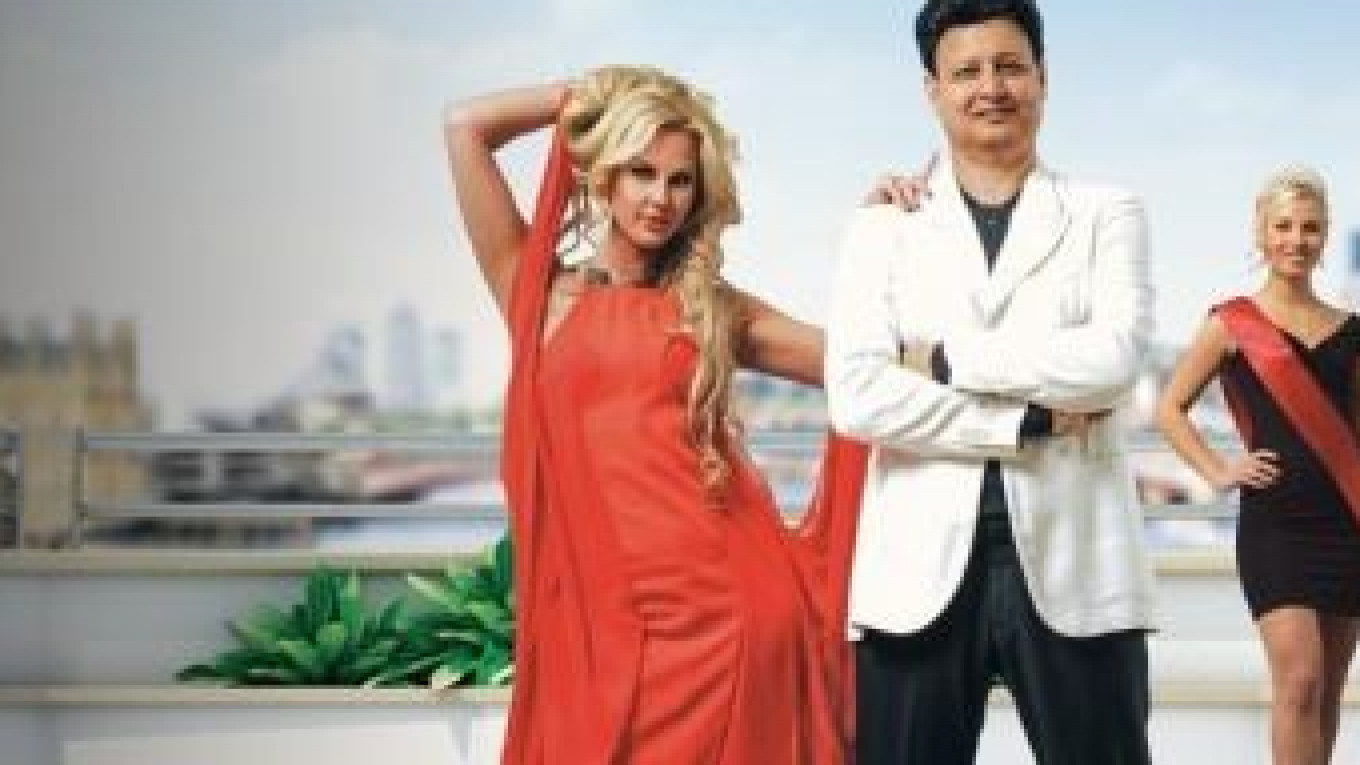"Meet the Russians," a reality entertainment show produced by Fox TV, will start broadcasting in Britain on Sept. 25. It estimates there are 300,000 Russians now resident in London, and it intends to look at a cross section of the most flamboyant ones.
"Prepare to enter a jaw-dropping world of unbelievable riches and extraordinary characters", declares the website. "In our brand new fly-on-the-wall series, you'll experience one extraordinary world dripping in lashings of luxury, opulence, exclusive events and private jets. This is a Russian fairy tale with a difference."
The show advertises characters such as Dmitry: "Always outrageous, Dmitry is the star of any event he attends, and his tongue is as sharp as his dress sense and Louboutin spiked shoes!" Or Katia: "The latest top Russian model to make it big internationally."
Of course, the participants in the series are not the typical Russians in London, but they are rather more the type of person usually found on FOX reality TV shows.
However, the series is the latest manifestation of the ongoing high-profile Russian presence throughout Britain, in general, and London in particular. It has been 10 years since Roman Abramovich bought Chelsea FC in one of the most public symbols of a wave of Russian new money that made inroads into British life. Abramovich and the likes of Leonard Blavatvik and the Waterstones book chain owner, Alexander Mamut, have moved the cliche of the Russian away from the 1980s cold war warriors to the new cliches of "Moscow on Thames" and "Londongrad," the home for billionaire oligarchs with a taste for anglophilia.
British-Russian political relations might have been strained by Alexander Litvinenko and Syria, yet at a social level, relations between the two nations have never been better. It is hard to find an official estimate of the number of Russians who have made Britain their home: it varies from 32,000, the Office of National Statistics figure in 2009, to 400,000. The Sunday Times Rich List of the wealthiest people in Britain in 2013 is topped by Russian Alisher Usmanov. Another emigre, Yevgeny Lebedev, has lived in England since he was a child. Born in Russia, he came to London as a diplomat's son; his father Alexander worked at the Soviet Embassy. He is now chairman and owner of the Evening Standard, Independent and Independent on Sunday and a naturalized British subject who has made a contribution to British life.
It is London, rather than the rising stars of the East, Beijing and Shanghai, to which the rich and huddled masses of the 21st century are heading for a more secure life. Today, it is riding the crest of a wave of high-profile international events: the Royal wedding in 2011, the Queen's Diamond Jubilee and the Olympic Games in 2012. On Sept. 2, a survey by the polling organization, Ipsos, of 18,000 people in 24 countries were given a list of 48 major cities, and the results were compiled into a list of the best cities to do business in, the best to live in, the most desired to visit, the world's favorite city and Europe's favorite city. London was the only city in the world to feature in the top 5 of each list. These reasons all contribute to its desirability amongst Russia's new money.
Natasha Semyonova-Bateman is based in England and runs Usadba Britania (Britannia Manor), a consultancy for Russians who wish to move permanently to Britain. She interprets it as the first wave of oligarchs being attracted by the financial and legal protection that Britain could offer them and their capital.
"Unlike some other countries playing the roles of 'private bankers,' Britain has much more kudos," Semyonova-Bateman told The Moscow Times. "Britain has political power and a place in the world to be contended with, its conservatism and respect for tradition is second to none. That gives great confidence to owners of various assets. This is a country that will and can protect ownership."
London is easier to fly to from Moscow than New York or Shanghai: "The distance helps as well: a 3 1/2 hour flight — it's an average traffic jam in Moscow," Semyonova-Bateman said.
The background of the Russians is equally diverse. However, the oligarch image is a cliche. "If you are in Oxford, the Russians you would know are usually scientists," Semyonova-Bateman said. "If you work in the city, they are bankers, traders, IT's — in one word: professionals. And one can't tell the difference."
Nevertheless, immigration is a political issue in Britain and the British government has recently imposed visa restrictions on non-EU citizens, and this has reduced the number of Russians eligible to settle in Britain. Tanya Laidlaw, a lawyer who specializes in immigration, thinks it will not necessarily deter people.
"In my view, the number of Russian investors and entrepreneurs definitely increased in recent years. This is because some immigration categories were closed and some were toughened up. The visa restrictions will define the type of Russians who can afford to come to Britain but will not stop them," Laidlaw said.
Natasha believes the reason Russians are in London is not about wealth, luxury homes and parties, but the chance to interact in a different culture. "Someone coming from the very aggressive, pushy and not-trusty Moscow environment starts living in a completely different world and they change too. For the first time, their kids don't need a driver or a bodyguard. They can just hang out with their friends, use the tube and be normal. Though shocked by this freedom at first, they really enjoy it and, really, that's what they are here for — a normal life."
Contact the author at artsreporter@imedia.ru
A Message from The Moscow Times:
Dear readers,
We are facing unprecedented challenges. Russia's Prosecutor General's Office has designated The Moscow Times as an "undesirable" organization, criminalizing our work and putting our staff at risk of prosecution. This follows our earlier unjust labeling as a "foreign agent."
These actions are direct attempts to silence independent journalism in Russia. The authorities claim our work "discredits the decisions of the Russian leadership." We see things differently: we strive to provide accurate, unbiased reporting on Russia.
We, the journalists of The Moscow Times, refuse to be silenced. But to continue our work, we need your help.
Your support, no matter how small, makes a world of difference. If you can, please support us monthly starting from just $2. It's quick to set up, and every contribution makes a significant impact.
By supporting The Moscow Times, you're defending open, independent journalism in the face of repression. Thank you for standing with us.
Remind me later.






